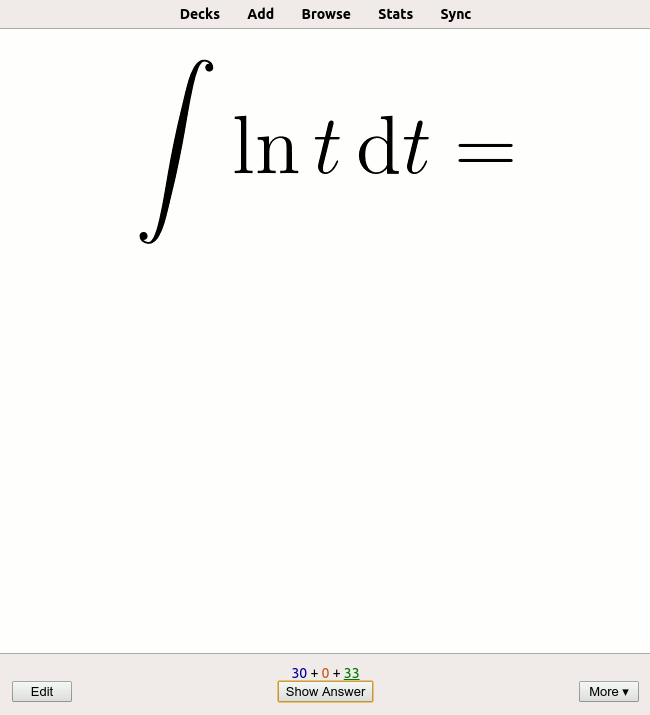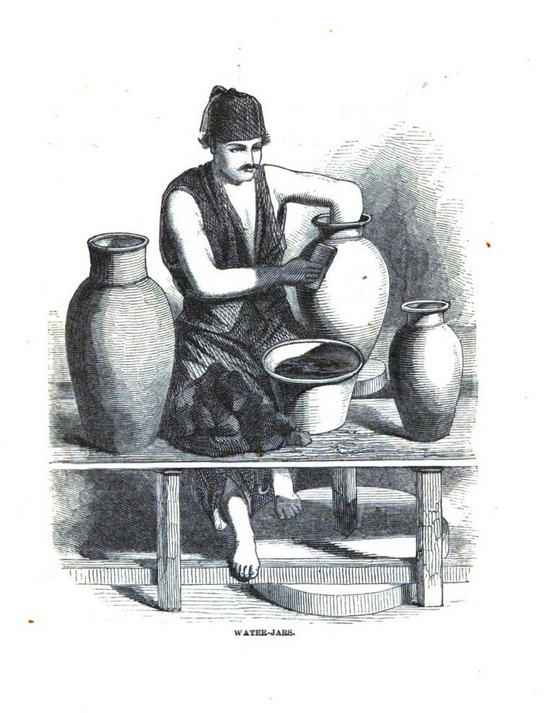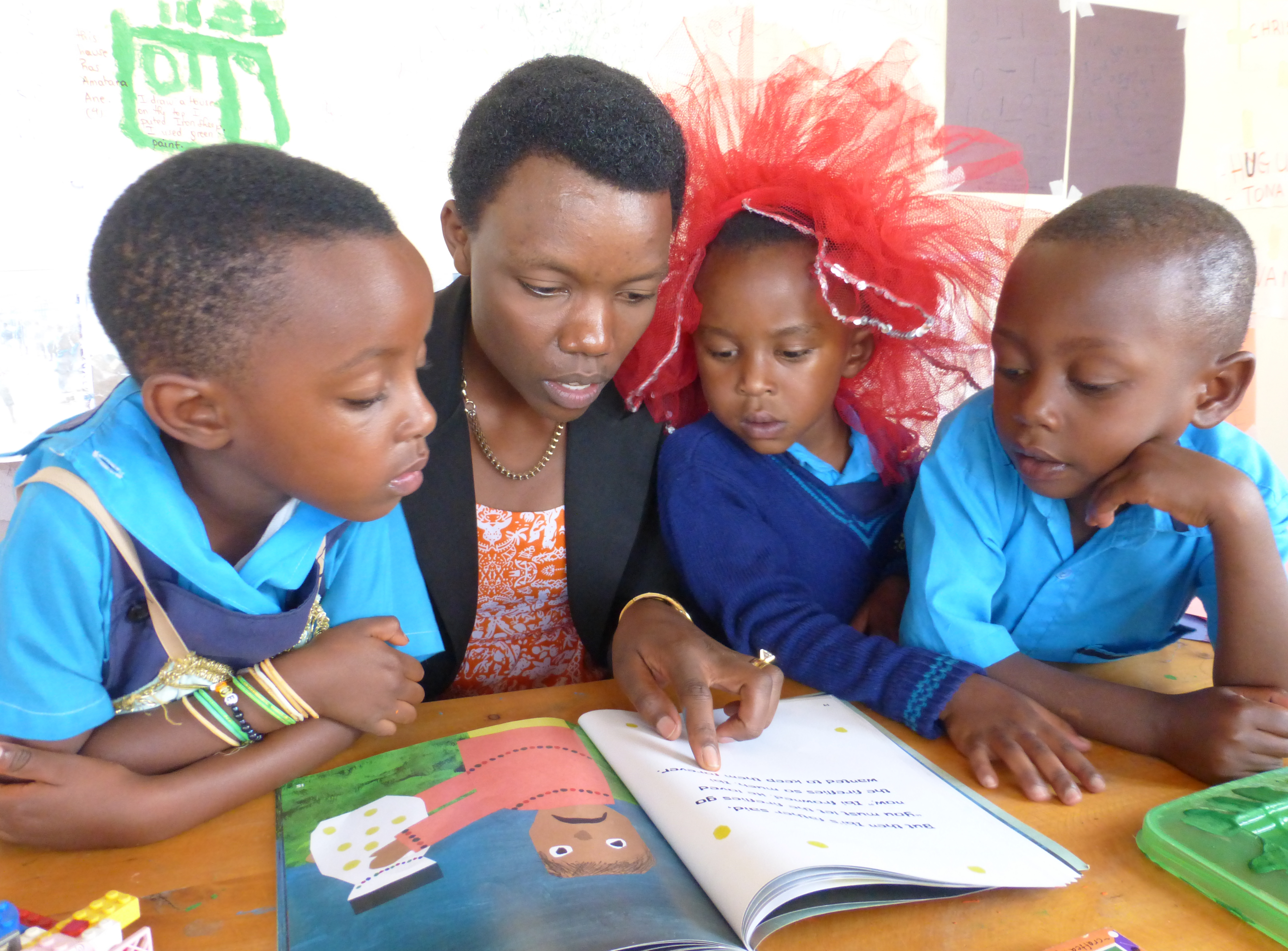|
Flashcard
A flashcard or flash card is a card bearing information on both sides, usually intended to practice and/or aid memorization. It can be virtual (part of a flashcard software) or physical. Typically, each flashcard bears a question or definition on one side and an answer or target term on the other. As such, flashcards are often used to memorize vocabulary, historical dates, formulae, or any subject matter that can be learned via a question-and-answer format. Flashcards are an application of the testing effect, the finding that long-term memory is increased when some part of an individual's learning period is devoted to retrieving information through testing with proper feedback. Study habits affect the rate at which a flashcard user learns, and proper spacing of flashcards has been proven to accelerate learning. Format Two-sided cards Physical flashcards are two-sided. They have a number of uses and can be simple or elaborate depending on the user's needs and preferences. ... [...More Info...] [...Related Items...] OR: [Wikipedia] [Google] [Baidu] |
Leitner System
The Leitner system is a widely used method of efficiently using flashcards that was proposed by the German science journalist Sebastian Leitner in 1972. It is a simple implementation of the principle of spaced repetition, where cards are reviewed at increasing intervals. Method In this method, flashcards are sorted into groups according to how well the learner knows each one in Leitner's learning box. The learners try to recall the solution written on a flashcard. If they succeed, they send the card to the next group. If they fail, they send it back to the first group. Each succeeding group has a longer period before the learner is required to revisit the cards. In Leitner's original method, published in his book ''So lernt man Lernen'' (How to learn to learn), the schedule of repetition was governed by the size of the partitions in the learning box. These were 1, 2, 5, 8, and 14 cm. Only when a partition became full was the learner to review some of the cards it contai ... [...More Info...] [...Related Items...] OR: [Wikipedia] [Google] [Baidu] |
Testing Effect
The testing effect (also known as retrieval practice, active recall, practice testing, or test-enhanced learning) suggests long-term memory is increased when part of the learning period is devoted to retrieving information from memory. It is different from the more general '' practice effect'', defined in the APA Dictionary of Psychology as "any change or improvement that results from practice or repetition of task items or activities." Cognitive psychologists are working with educators to look at how to take advantage of tests—not as an assessment tool, but as a teaching tool since testing prior knowledge is more beneficial for learning when compared to only reading or passively studying material (even more so when the test is more challenging for memory). History Before much experimental evidence had been collected, the utility of testing was already evident to some perceptive observers including Francis Bacon who discussed it as a learning strategy as early as 1620. ''"He ... [...More Info...] [...Related Items...] OR: [Wikipedia] [Google] [Baidu] |
Favell Lee Mortimer
Favell Lee Mortimer (born Favell Lee Bevan; 14 July 1802 – 22 August 1878) was a British Evangelical author of educational books for children. Early life Bevan was born on 14 July 1802, at Russell Square in London, England. She was the third of eight children of Favell Bourke Lee (1780–1841) and Barclays bank co-founder David Bevan (1774–1846). When she was six the family moved to Hale End, Walthamstow, where her mother came under the strong evangelical influence of both the Rev. George Collison and the family governess Clara Claire. When Favell was twenty the family moved back to Upper Harley Street in London to enjoy a full social life and her father bought an estate in East Barnet which he named Belmont, East Barnet. Career Bevan oversaw the religious education of children on her father's estates, at Fosbury, in Wiltshire and in East Barnet and her interest in educational writing grew from that experience. She developed her own method of teaching children to read b ... [...More Info...] [...Related Items...] OR: [Wikipedia] [Google] [Baidu] |
SuperMemo
SuperMemo (from "Super Memory") is a learning method and software package developed by SuperMemo World and SuperMemo R&D with Piotr Woźniak in Poland from 1985 to the present. It is based on research into long-term memory, and is a practical application of the spaced repetition learning method that has been proposed for efficient instruction by a number of psychologists as early as in the 1930s. The method is available as a computer program for Windows, Windows CE, Windows Mobile (Pocket PC), Palm OS (PalmPilot), etc. Course software by the same company (''SuperMemo World'') can also be used in a web browser or even without a computer. The desktop version of SuperMemo started as a flashcard software (SuperMemo 1.0 (1987)). Since SuperMemo 10 (2000), it began to support incremental reading. Software implementation The SuperMemo program stores a database of questions and answers constructed by the user. When reviewing information saved in the database, the program uses the ... [...More Info...] [...Related Items...] OR: [Wikipedia] [Google] [Baidu] |
Mnemosyne (software)
Mnemosyne (named for the Greek goddess of memory, Mnemosyne) is a line of spaced repetition software developed since 2003. Spaced repetition is an evidence-based learning technique that has been shown to increase the rate of memorization. Features * Spacing algorithm based on an early version of the SuperMemo algorithm, SM-2, with some modifications that deal with early and late repetitions. * Supports pictures, sound, video, HTML, Flash and LaTeX * Portable (can be installed on a USB stick) * Categorization of cards * Learning progress statistics * Stores learning data (represented as decks of cards that each have a question and an answer side) in ".mem" database files, which are interoperable with a number of other spaced repetition applications * Plugins and JavaScript support * Review cards on Android devices. * Synchronization between other machines Overview Each day, the software displays each card that is scheduled for repetition. The user then grades their recollection ... [...More Info...] [...Related Items...] OR: [Wikipedia] [Google] [Baidu] |
Memorization
Memorization (British English: memorisation) is the process of committing something to memory. It is a mental process undertaken in order to store in memory for later recall visual, auditory, or tactical information. The scientific study of memory is part of cognitive neuroscience, an interdisciplinary link between cognitive psychology and neuroscience. Development Within the first three years of a child's life, they begin to show signs of memory that is later improved into their adolescent years. This includes short-term memory, long-term memory, working memory, and autobiographical memory. Memory is a fundamental capacity that plays a special role in social, emotional, and cognitive functioning. Problems with studying the development of memorization include having to use verbal response and confirmation. Techniques Some principles and techniques that have been used to assist in memorization include: Rote learning Rote learning is a learning technique which focuses n ... [...More Info...] [...Related Items...] OR: [Wikipedia] [Google] [Baidu] |
Vocabulary
A vocabulary (also known as a lexicon) is a set of words, typically the set in a language or the set known to an individual. The word ''vocabulary'' originated from the Latin , meaning "a word, name". It forms an essential component of language and communication, helping convey thoughts, ideas, emotions, and information. Vocabulary can be oral, written, or signed and can be categorized into two main types: active vocabulary (words one uses regularly) and passive vocabulary (words one recognizes but does not use often). An individual's vocabulary continually evolves through various methods, including direct instruction, independent reading, and natural language exposure, but it can also shrink due to forgetting, trauma, or disease. Furthermore, vocabulary is a significant focus of study across various disciplines, like linguistics, education, psychology, and artificial intelligence. Vocabulary is not limited to single words; it also encompasses multi-word units known as c ... [...More Info...] [...Related Items...] OR: [Wikipedia] [Google] [Baidu] |
List Of Flashcard Software
This article contains a list of notable flashcard software. Flashcards are widely used as a learning drill to aid Memory, memorization by way of spaced repetition. Software Platform support References [...More Info...] [...Related Items...] OR: [Wikipedia] [Google] [Baidu] |
Phonics
Phonics is a method for teaching reading and writing to beginners. To use phonics is to teach the relationship between the sounds of the spoken language (phonemes), and the letters (graphemes) or groups of letters or syllables of the written language. Phonics is also known as the alphabetic principle or the ''alphabetic code''. It can be used with any writing system that is alphabetic, such as that of English, Russian, and most other languages. Phonics is also sometimes used as part of the process of teaching Chinese people (and foreign students) to read and write Chinese characters, which are not alphabetic, using pinyin, which is alphabetic. While the principles of phonics generally apply regardless of the language or region, the examples in this article are from General American English pronunciation. For more about phonics as it applies to British English, see Synthetic phonics, a method by which the student learns the sounds represented by letters and letter combina ... [...More Info...] [...Related Items...] OR: [Wikipedia] [Google] [Baidu] |
Sebastian Leitner
Sebastian Leitner (1919 in Salzburg – 1989) was a German commentator and science popularizer. As a student in Vienna, he was briefly kept in custody by the Nazi Nazism (), formally named National Socialism (NS; , ), is the far-right politics, far-right Totalitarianism, totalitarian socio-political ideology and practices associated with Adolf Hitler and the Nazi Party (NSDAP) in Germany. During H ...s in 1938 because of his opposition to the annexation of Austria into Greater Germany. Later he moved to Frankfurt to study law, but he was recruited by the Wehrmacht in 1942. After spending several years in a Soviet Union, Soviet POW camp, he returned to Germany in 1949 and started a career as a Pundit (expert), commentator. His wife was the Austrian journalist and author Thea Leitner. At first, he focused on legal and sociological topics, but later he took medical and psychology-related subjects as his theme. His book ''So lernt man lernen'' (How to learn to learn), ... [...More Info...] [...Related Items...] OR: [Wikipedia] [Google] [Baidu] |



